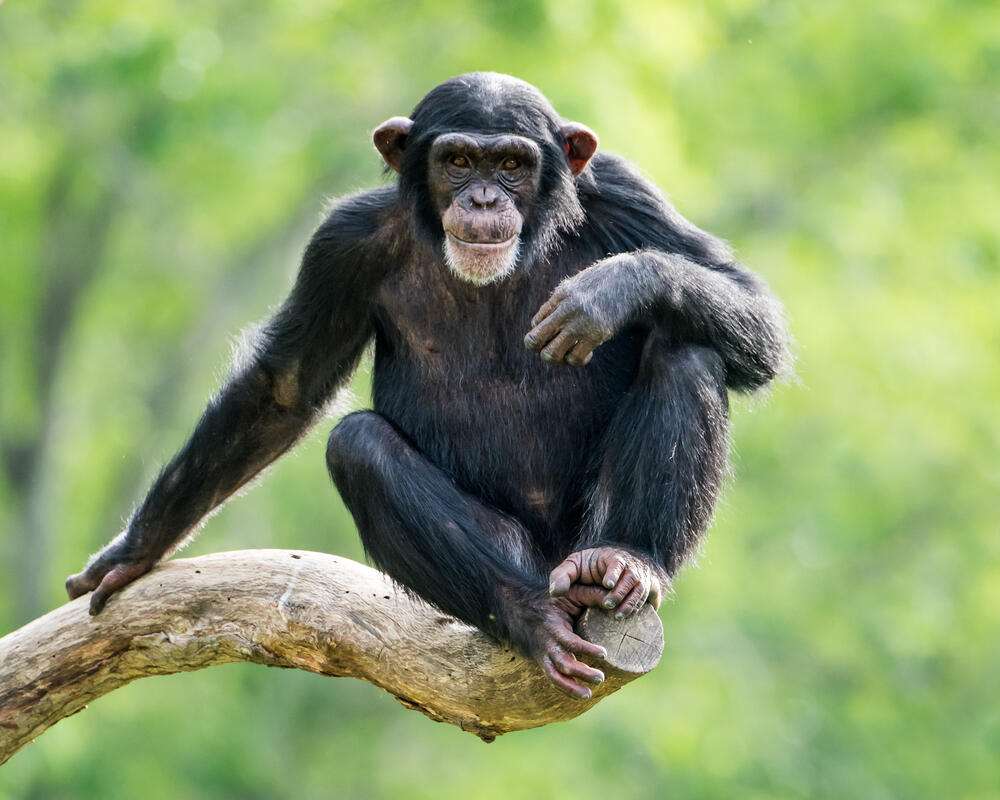Getting your Trinity Audio player ready...
Researchers suggest that the common ancestors of humans and chimpanzees possessed brain structures required for speech, which are still present in modern chimpanzees.
Videos and recordings of captive chimpanzees revealed their ability to produce syllables, vowel-consonant combinations, and even the word "mama," resembling human speech patterns, according to research published in the journal Scientific Reports.
Participants in an online experiment mistook some chimpanzee vocalizations for human speech, suggesting that these primates have underestimated vocal abilities.
Some researchers doubt the success of previous adoption experiments that aimed to teach apes speech, remaining unconvinced that the sounds made by chimpanzees are related to human speech.
Humans' exceptional brain development and ability to coordinate jaw and throat movements allowed for the evolution of complex speech, facilitating cooperation and knowledge accumulation across generations.
While chimpanzees may have the vocal anatomy and neural components for speech, enculturation, and training are necessary to unlock these capabilities.
This article was written in collaboration with Generative AI news company Alchemiq
Sources: NY Times, Deccan Herald, El Correo Gallego.


